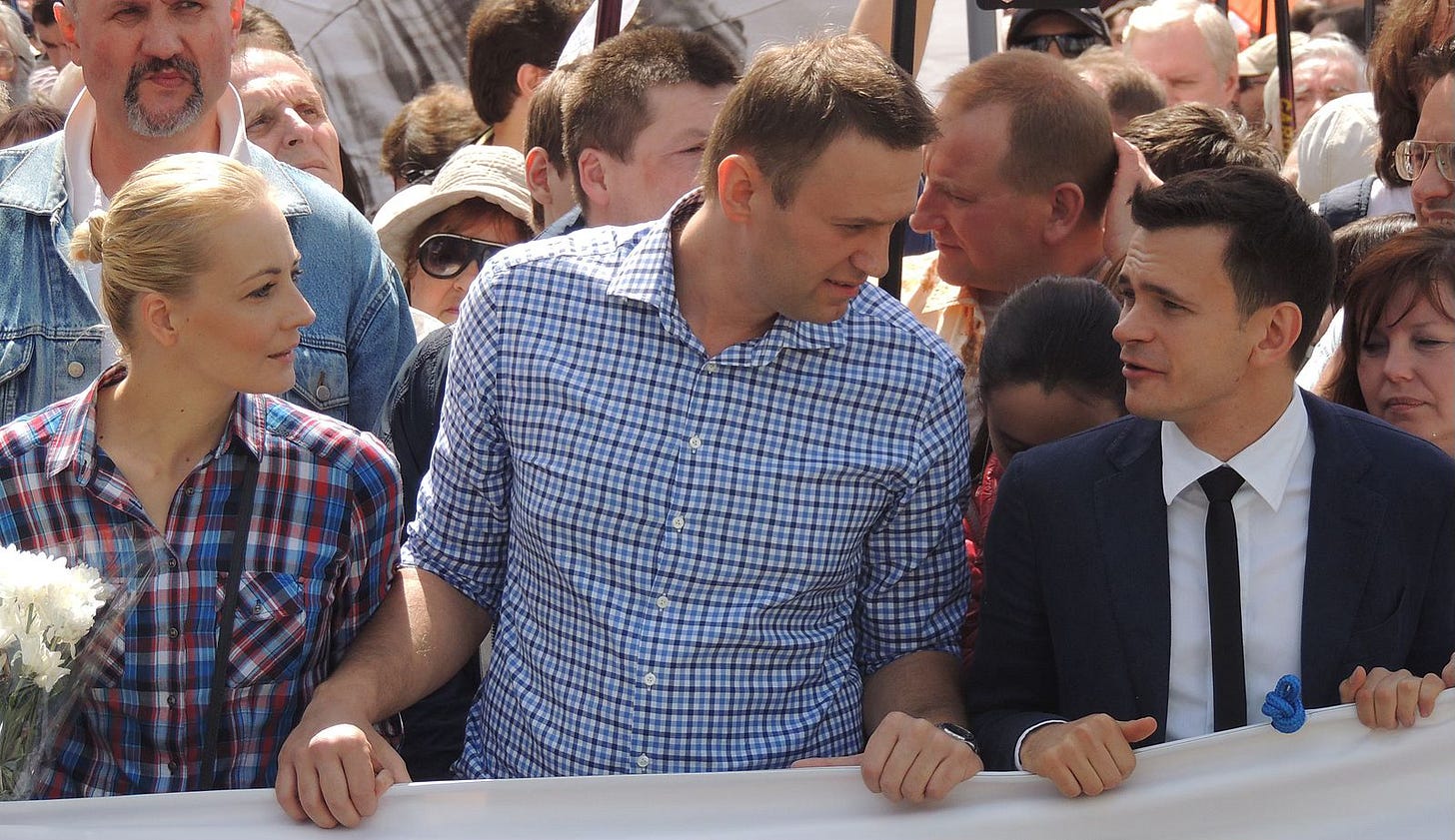In Death, Navalny Freed Russian Political Prisoners
'A legacy for his self-sacrifice,' says a former colleague

Throughout the August 1 prisoner swap involving 24 people from Russia and Western countries, I was thinking of the one person who was not there: Alexei Navalny. On February 16, the Russian dissident died in a penal colony in the Arctic Circle. Ten days after his death, his colleague Maria Pevchikh revealed in a video that he had been on the verge of being freed in a prisoner swap along with two U.S. citizens for Vadim Krasikov, a convicted Russian assassin and state security agent imprisoned in Germany. However, she said that Vladimir Putin changed his mind at the last minute -- Navalny was perhaps the only Russian politician whom Putin truly saw as a threat -- and had Navalny killed. Speaking to reporters at the White House on August 1, National Security Adviser Jake Sullivan confirmed that Navalny was part of hostage talks before his sudden death. Krasikov was freed in the swap.
According to Christo Grozev, an investigative journalist and colleague of Navalny's, his death led to more Russian political prisoners being freed. On August 1, Grozev said on CNN that Navalny's death in Russian custody nearly torpedoed the deal: Germany, which had insisted that Navalny be part of any swap, no longer was keen to give up Krasikov. However, Grozev hatched a new deal, ultimately resulting in the freedom of seven Russian citizens, six citizens of other Western countries, and three U.S. citizens, including Evan Gershkovich and Paul Whelan. Grozev added, "Navalny led to more people being freed through his death, which I think he would have loved to know to have happened as a legacy for his self-sacrifice."
It's difficult to comprehend the emotions that Yulia Navalnya, Alexei's widow, and his two children, must be going through. Navalnaya received a call from Vice President Kamala Harris on the day of the swap.
The dissidents who were freed as part of the swap were mostly convicted for speaking about the war in Ukraine truthfully: they broke the law by calling the Russian invasion an invasion and not a "special military operation" and speaking accurately about Russian war crimes in places like Bucha and Mariupol. For violating wartime censorship, they were sentenced to long prison terms: 25 years for Washington Post contributor Vladmir Kara-Murza, 8.5 years for Russian opposition figure Ilya Yashin, and seven years for artist Aleksandra Skochilenko. Grozev said the Russian prisoners had no idea that they would be freed until the past day or two; the White House deserves credit for including Russians who had no government to advocate for them.
The fact that none of these innocent people will have to serve out their long sentences and can reunite with their families is unequivocally a good and moral thing. However, the West paid a price for their return.


